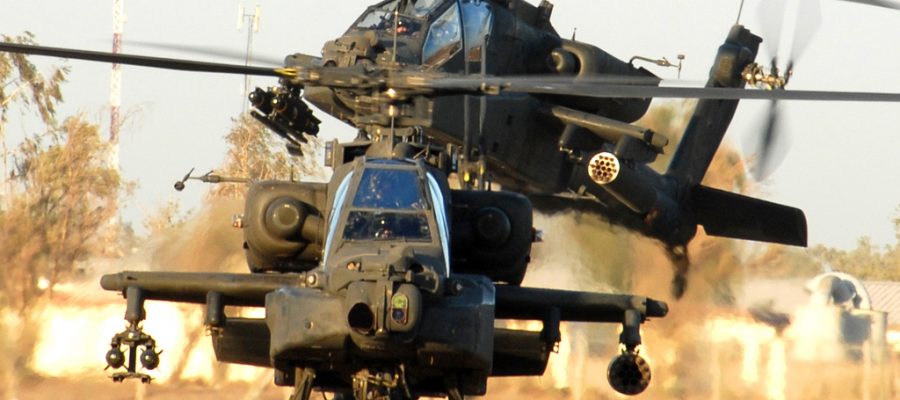More details continue to come forth on the direct conflict between Russia and United States in Syria on February 7, 2018 when Russian mercenaries attacked U.S. forces and the U.S. retaliated.
A Russian oligarch believed to control the Russian mercenaries who attacked U.S. troops and their allies in Syria this month was in close touch with Kremlin and Syrian officials in the days and weeks before and after the assault, according to U.S. intelligence reports.
In intercepted communications in late January, the oligarch, Yevgeniy Prigozhin, close friend of russian President Vladimir Putin, told a senior Syrian official that he had “secured permission” to move forward with a “fast and strong” initiative that would take place in early February. Prigozhin has been indicted by Special Counsel Robert Mueller on charges of bankrolling and guiding a long-running Russian scheme to conduct “information warfare” during the 2016 U.S. presidential campaign.
Prigozhin is known is believed to control Russian mercenaries fighting in Syria on behalf of President Bashar Assad. The mercenaries, employed by a company called Wagner, comprise ultranationalist Russians and military veterans, some of whom also fought in the Ukraine conflict.
This attack marked the biggest direct challenge to the U.S. military presence in eastern Syria since U.S. Special Operations forces began deploying there in 2015 in support of their Syrian allies in the fight against the Islamic State. The episode also raises questions about ongoing U.S. cooperation in Syria with Russia and possible recent tensions between President Putin and President Trump.
The attack happened on the night of Feb. 7-8, when a headquarters base of U.S. troops and their Syrian allies, located near a strategic oil field several miles east of the river close to the town of Deir al-Zour, was attacked by 300 to 500 “pro-regime” forces. The Americans quickly mobilized a ferocious response, including AC-130 gunships, jet warplanes and Apache attack helicopters. The attacking force retreated after three hours of fighting leaving behind about 100 dead attackers. No casualties were reported among the Americans and their allies, the Syrian Democratic Forces (SDF).
The Pentagon says it is still investigating and has reached no conclusion on the identities of the attackers. Defense Secretary Jim Mattis called the incident “perplexing” and said “I cannot give any explanation” as to why a “pro-regime” force would cross the river and fire on a known SDF and U.S. headquarters.
The Russian government continues to deny their direct involvement even though on Jan. 24, Prigozhin said he had secured permission from an unspecified Russian minister the day before to move forward with a “fast and strong” initiative and was awaiting a decision by the Syrian government.
On Jan. 30, Prigozhin “indicated he had a ‘good surprise’ ” for Assad “that would come between 6 and 9 February.” According to one intelligence report, he also was assured by Azzam that he would be paid for his work.
The reports also indicated increased communications between Prigozhin and Kremlin officials during the same period. The communications continued until Feb. 5 and resumed the day after the attack.
U.S. Special Forces at the base and overhead reconnaissance had seen the attack force mobilizing west of the river at least a week before the attack, according to Mattis and Lt. Gen. Jeffrey Harrigian, commander of U.S. Air Forces Central Command. They notified the Russians at that time and warned that the base would defend itself. Asked in a briefing with reporters last week to characterize the conversations, Harrigian said only that they “remained professional.”
On the night of the attack, Mattis said, “the Russians profess that they were not aware when we called about that force that had crossed, and it came closer. They were notified when the firing began,” and the Americans were told “there were no Russians there.”
The Syrian government has repeatedly threatened to use force to ensure the departure of U.S. troops from Syria and Russia also has condemned the U.S. presence in Syria as “illegal” because the United States did not secured permission from the Syrian government.
Russia is leading the bombing in Ghouta while hiding behind Syria as support only, a move that further displays Russia’s intentions in Syria and toward the U.S.
A senior administration official, speaking on the condition of anonymity about the sensitive issue, described the episode as “worrisome.” The official added that “it’s striking how the Russians themselves have been quick to distance themselves” from what he described as an operation “under Syrian command and in response to Syrian directive.”
Russia’s aggression is a concern for Bible prophecy watchers who believe Russia and Iran are the allies who will cause global war.
SOURCES

